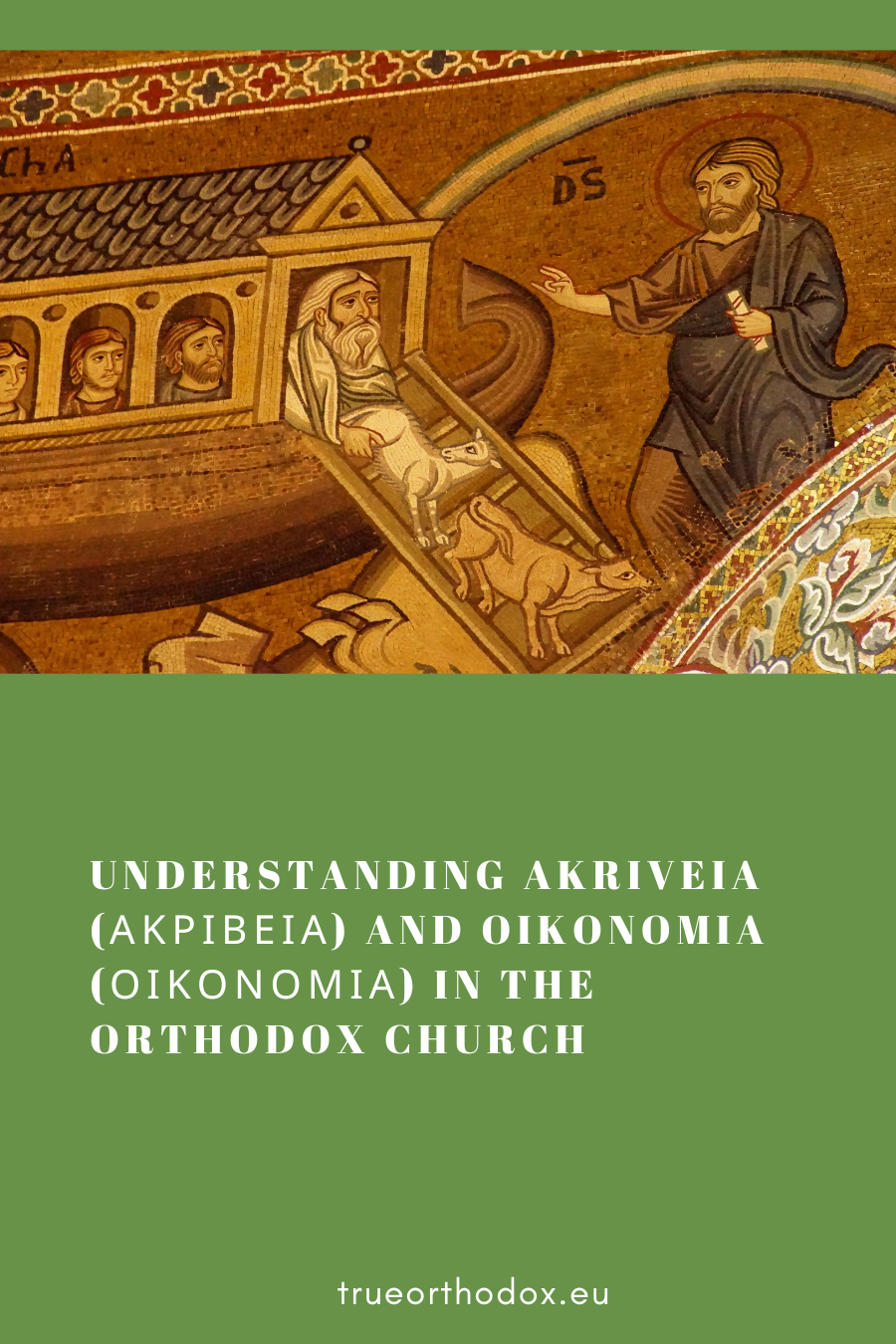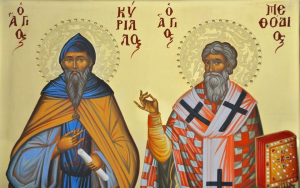Understanding Akriveia (Ἀκρίβεια) and Oikonomia (Οἰκονομία) in the Orthodox Church

+ B.P.
In the life of the Orthodox Church, the concepts of “Akriveia” (Ἀκρίβεια) and “Oikonomia” (Οἰκονομία) play crucial roles in the administration of ecclesiastical matters and the pastoral care of the faithful. These terms, often translated as “Exactness” and “Dispensation” respectively, embody the Church’s approach to balancing strict adherence to its canonical and administrative standards with the compassionate flexibility necessary to address individual circumstances. Let’s explore these concepts in greater detail to understand their differences and how they are applied within the Church.
Akriveia: The Principle of Exactness
Akriveia, or Exactness, refers to the strict and precise application of the Church’s canons, rules, and teachings. It is the ideal standard by which the Church aims to preserve the purity of its faith and practice. Akriveia is never wrong as such but perhaps can cause in some cases certain problems.
Key Aspects of Akriveia:
Canonical Rigidity: Akriveia involves a strict adherence to the canons and ecclesiastical laws without deviation. This ensures that the Church remains faithful to its traditions and doctrines.
Doctrinal Purity: It seeks to maintain the purity of the Church’s teachings, safeguarding against heresies and doctrinal errors.
Liturgical Integrity: In liturgical practices, Akriveia ensures that services are conducted according to the prescribed rubrics and rituals, preserving the sanctity and uniformity of worship.
Moral Standards: It upholds high moral standards, expecting the faithful to adhere strictly to the ethical teachings of the Church.
Oikonomia: The Principle of Dispensation
Oiconomia, economia, or Dispensation, represents the Church’s pastoral flexibility. It is the application of mercy and practical wisdom in situations where strict adherence to Akriveia might lead to unnecessary hardship or fail to achieve the intended spiritual benefit.
Key Aspects of Oikonomia:
Pastoral Sensitivity: Oikonomia is applied by bishops and priests with a deep understanding of the individual circumstances of the faithful, allowing for compassionate and practical solutions.
Mitigating Hardship: It seeks to protect those who might be a bit hesitant to enter or remain in the Church due to the rigid application of the canons, ensuring that the spiritual well-being of individuals is prioritized, but only if this is possible while at the same time without ever removing Akriveia as the rule.
Temporary Measures: Oikonomia is often seen as a temporary measure, meant to address specific situations without undermining the overall integrity of the Church’s laws and traditions.
Contextual Flexibility: It allows for contextual adjustments in canonical and liturgical matters, recognizing the diverse and dynamic nature of the human condition.
Balancing Akriveia and Oikonomia
The Orthodox Church, in its wisdom, understands that the rigid application of laws (Akriveia) and the need for compassionate flexibility (Oikonomia) are not contradictory but complementary. The Church Fathers have emphasized that the ultimate goal is the salvation and spiritual growth of the faithful, and both principles serve this higher purpose.
Application in Church Life:
Sacramental (in the Holy Mysteries) Discipline : In matters like marriage, baptism, and confession, the Church might apply Akriveia to uphold its teachings but use Economia to address irregular situations. The Church never accepts “mysteries” done outside of Her as valid. However, we can use Oikonomia to add grace to the previously performed outward form of the invalid Mystery. For example, when we accept those who have the form of Holy Baptism (3 full immersions in the name of the Holy Trinity) by Holy Chrism we add grace to the graceless mystery performed by heretics. We do this to help some future faithful who might find the performing of a baptism difficult with the understanding that they were not previously “in the Holy Church”.
Fasting Rules: The Church prescribes strict fasting rules (Akriveia), but priests might apply Economia to individuals who are ill, pregnant or have other legitimate reasons for needing a dispensation.
Penitential Practices: Akriveia might dictate certain penances for sins, but Oikonomia allows spiritual fathers to tailor penances to the individual’s capacity and situation.
Canonical Irregularities: Issues such as irregular ordinations or mixed marriages might be resolved through Oikonomia, ensuring that the resolution fosters spiritual healing and unity rather than division.
Conclusion
Akriveia and Oikonomia are not just theological concepts but living principles that guide the pastoral and administrative actions of the Orthodox Church. They embody the Church’s commitment to uphold its sacred traditions while being profoundly sensitive to the pastoral needs of its faithful. By maintaining this delicate balance, the Church ensures that its laws serve the higher purpose of leading souls to Christ, nurturing them in love, and guiding them toward salvation.
For more insights into Orthodox practices and theology, stay tuned to TrueOrthodox.eu, where we delve deeper into the rich spiritual heritage of our Faith.








